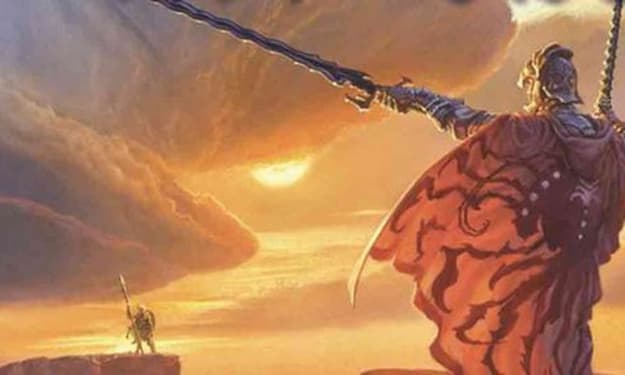I still remember the day I was exposed to videogames for the first time in my life and how much of a drastic impact it had on me. I was still living in Dominican Republic, and I can recall the day our neighbor unboxed a brand new PlayStation he had been gifted by a relative from New York along with a game. That game was Final Fantasy VII, and for those familiar even a tiny bit with video games would know that this game still to this day holds a lot of influence.
Final Fantasy VII was an amazing game, but if it were one game that probably consumed all of my free time more than any other game, it was Diablo II. I remember the first time I booted this game up on my old computer and immediately falling in love with the dark aesthetic. Ten year old me was completely enamored by the blood and gore that I became insanely addicted. Killing demons and hunting down rare items in hopes of finding that one piece of gear that would completely overpower your character to the point where the burning hells themselves would kneel to your power. The absolute bliss I felt when I played games like Diablo II was euphoric. It was a happiness that can resonated with many people, though many of us would be taken aback by the current state of videogames if you were to go back and time and tell us what fate awaited some of our beloved franchise.
Capitalism is easy to understand. You make product, you sell product. Boom. You win. It can really be that simple, and for people who have a passion project that they devote their entire lives to, that's exactly what happened. They would put their blood, sweat, and tears into these massive passion projects, they would get insanely popular, and then the creator of these intellectual properties would retire and move on to something else. You can't blame for someone who does this. This is everyone's goal, as no one wants to be a perpetual slave to capitalism- but then what happens to the IP?
When a company creates a videogame, they create it, distribute it, and usually sell it at a fixed price which is commonly about $60. For some people, this may be the goal; create a popular game and sell enough to basically retire. However, when a company becomes publicly traded, suddenly the bottom line starts to matter a lot more. These IPs that originally started out as passion projects slowly turn into cash cows, with these corporations milking these brands for all they can get. Companies began to realize that they could monetize their games further by creating downloadable content, something my generation called "expansions". The MMORPG genre was huge when it came to creating expansions, with World of Warcraft, a game that was released at the beginning of the 2000s, is still churning out expansions but that still was not enough to increase the price of the stock for these companies.
In order to become more profitable, these companies needed to become more predatory, and in order to succeed in doing so, they began to employ psychologists. Imagine a company that's sole purpose is to create videogames hiring psychologists; for what reason? It's simple- to make their games highly addicting, and not just that, but find a way to trick consumers into making in game purchases.
Now admittedly, this is a very fast summation of how monetization in videogames became so prevalent. There is a lot more to it then my watered down version of explaining, but for this example it's best to stick to simplicity. Corporations are opting out on charging for games entirely, enticing new gamers with a concept known as "free-to-play". The label "free-to-play" is basically a shield that these corporations use to make themselves immune to criticism. You can monetize a free game all you want to because, after all, it's free and you do not have to spend money on it.
It's a convenient defense, because it is hard to argue against it. However, what many people do not seem to realize is that these corporations who own some of the most popular IPs in the world with massive fanbases have completely changed their business model. These companies are no longer creating games for gamers. Instead what they are getting away with is evolving these video games into gambling simulators because that's essentially what they are.
The psychologists being hired by video game companies have one job and that's to lure players into a game's cash shop and attempt to entice them by offering exorbitant one time bonuses, or other tactics such as having you go into a cash shop to claim a "free" item, all the while attempting to bait you into spending money. If you take the time to actually download one of these games onto your phone and just take a moment to browse through that game's cash shop, you'll begin to see just how egregious this is.
My advice to anyone who is still somewhat involved in videogames to just keep your old games and enjoy them, because these kinds of games are never coming back. It just isn't profitable to create a videogame any more when you can find a way to get people hooked on a game and inundate them with gambling mechanics. The truth is that the industry has changed. It's no longer about games. The IPs we grew to love when we were younger died a long time ago. When CEOs like Bobby Kottick have become synonymous with growing a company's stock price, you have to wonder how they did it. There's a reason even after the controversy that Blizzard faced lately that Bobby Kottick is still the CEO of Activision-Blizzard. This man knows how to make a company profitable, no matter the cost. As someone who has enjoyed video games for as long as he can remember, it is disappointing to see the current state of videogames in such disarray.
About the Creator
Despain
I am a thirty something year old that's had the same story playing in his head since I was a child. Let's see what happens, I guess.







Comments
There are no comments for this story
Be the first to respond and start the conversation.